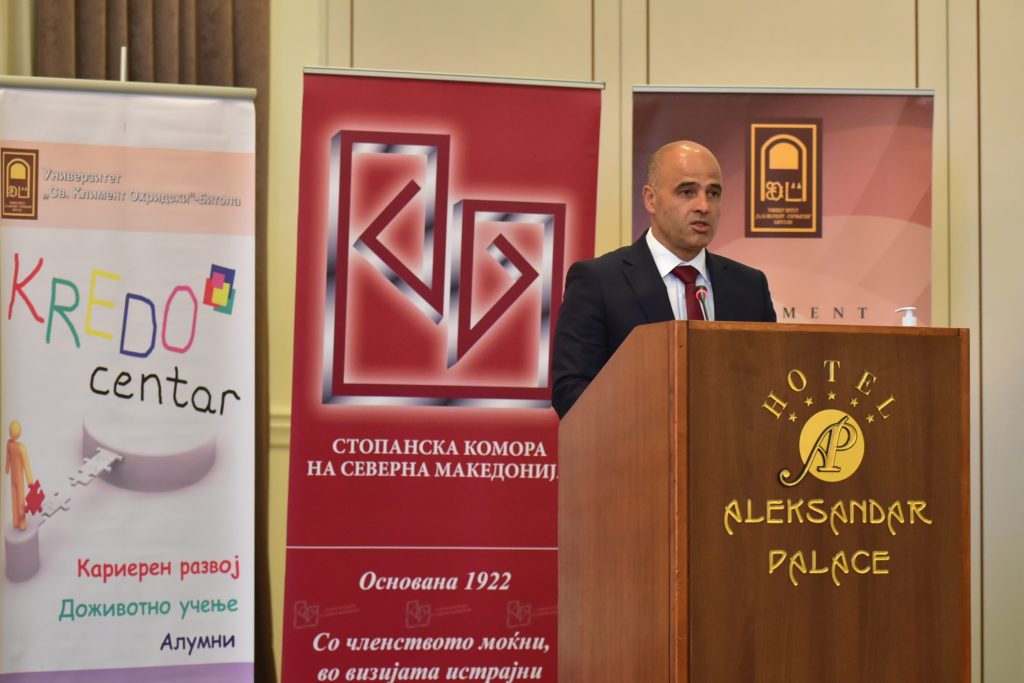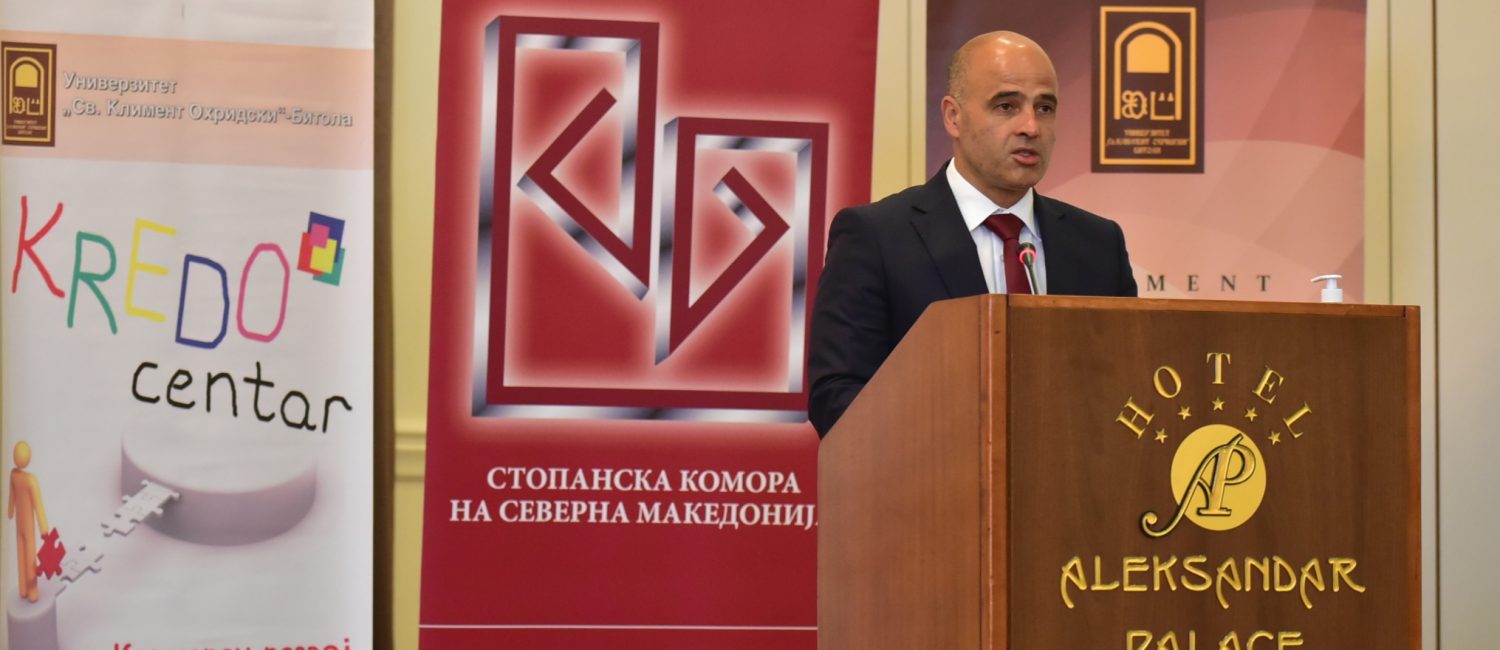22nd June 2021, Skopje – Government recognizes the human capital as a priority, by setting aside substantial amount of funds for investments therein. EUR 2.7 million has been allocated under the Draft Supplementary Budget, pertaining to investments in human capital, i.e. in the field of education, health and social protection, which when compared to the previous period of three years ago, being more than half a billion euros, Deputy Minister of Finance, Dimitar Kovachevski pointed out at the Conference “University Education and Business – Joint Challenges and Priorities”, organized by the Chamber of Commerce and the “Ss. Kliment Ohridski” University – Bitola.

Deputy Minister of Finance Kovachevski stressed that joint challenges as regards the university education and the economy will depend upon the ability of university cadres to match with the demand on the labour market, as well as the greater involvement of the experts from the highly scientific institutions in overcoming the issues and creating value added.
– Upon COVID-19 crisis, successful matching of supply with demand on the labour market, will become an even greater challenge. The new normal entails gradual closure of certain professions, at the same time creating a greater demand for other profiles. During the past years, Government demonstrated strong commitment to improved correspondence of supply and demand on the labour market. Hence, state budget funds allocated for active measures, experienced multi-fold increase. This year, in response to the effects of COVID-19, funds geared towards active employment measures have been increased from Denar 1.3 billion to historically highest ever Denar 1.66 billion or EUR 27 million. For comparison purposes, in 2016, budget funds amounting to only Denar 530 million have been set aside for active measures or by three times lower – Kovachevski said.
He underlined that COVID-19-induced crisis was and still is a global threat for human capital accumulation.
– During the past several years, the Government strived to allocate more funds for education, health and social protection with each upcoming Budget. Thus, under the proposed Supplementary Budget, Denar 28.6 billion has been allocated in the field of education or by Denar 3 billion more compared to the 2018 Budget, Denar 46.7 billion for the health sector or by Denar 14 billion more compared to 2018, with Denar 91.8 billion being set aside for the social care or by Denar 16.6 billion more compared to the period from three years ago. Thus, in just three years, human capital investments increased by over Denar 30 billion or over half a billion euros. We are talking about EUR 2.7 billion as human capital investments per year – Deputy Minister of Finance said.
Kovachevski stressed that partnerships between universities and the business community would be vital in rebuilding economies upon the pandemic, i.e. restarting the knowledge-based economy, thereby stressing the increasing examples of strategic partnerships between multinational corporations and universities.
















